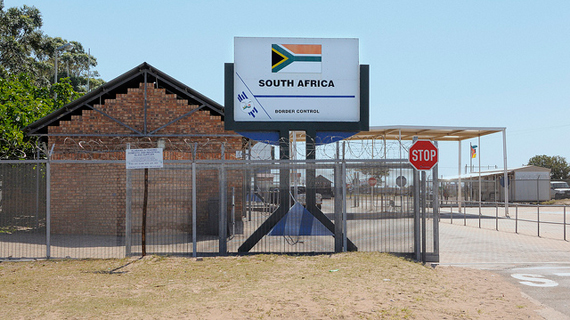
SOUTH AFRICA has introduced stringent immigration rules that would see foreign nationals overstaying being barred for five years from setting foot in that country.
Naturally as one of Africa’s economic powerhouses, South Africa is a magnet for foreign nationals desperate for jobs and a better life.
According to various reports, Zimbabweans make the bulk of foreigners in that country who are there legally or illegally.
The mass exodus of Zimbabweans to South Africa has been worsened by the deteriorating economic situation in this country, which is not showing any signs of abetting. Before the tightening of the immigration policies, those who overstayed were allowed to re-enter South Africa and apply for permits and visas after being made to pay fines.
However, with effect from May 26, those who overstay their allocated time in South Africa would be banned for a period ranging from one to five years.
The government has posted notices at points of entry including the Beitbridge border post alerting travellers about the new rules.
First-time offenders who overstay for less than 30 days would be banned from entering South Africa for one year, while second-time offenders who overstay by the same period get a two-year ban.
Those that overstay for a period exceeding 30 days are banned for five years. As expected, the regulations have been criticised especially by Zimbabweans who feel they would be disadvantaged.
- Chamisa under fire over US$120K donation
- Mavhunga puts DeMbare into Chibuku quarterfinals
- Pension funds bet on Cabora Bassa oilfields
- Councils defy govt fire tender directive
Keep Reading
The regulations would impact on over 200 000 Zimbabweans who benefited from a special dispensation that saw them getting work and study permits in 2009.
Their permits expire at the end of the year and according to the regulations, they have to come back home while awaiting their renewal.
Such an approach would see many of these people going underground and the vicious cycle of mass deportations and people finding their way back to South Africa will start all over again.
According to the International Organisation Migration, 24 305 Zimbabweans were deported from South Africa through the Beitbridge border post between January and October 2013.
Therefore, Zimbabwe has a huge stake in these developments and the government has to take a keen interest in this. Our opinion is that the changes were too abrupt and would create more problems than they seek to solve.










